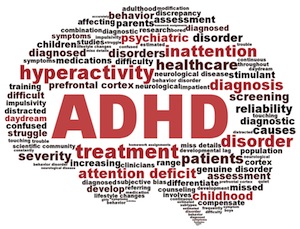#169 - Behavioral Options for ADHD

References: Richardson, M., Moore, D. A., Gwernan-Jones, R., Thompson-Coon, J., Ukoumunne, O., Rogers, M., … & Ford, T. J. (2015). Non-pharmacological interventions for attention-deficit/hyperactivity disorder (ADHD) delivered in school settings: systematic reviews of quantitative and qualitative research. Health technology assessment (Winchester, England), 19(45), 1-470.
Written by Mara Rowcliffe, BS.


 Give to Florida Tech
Give to Florida Tech 